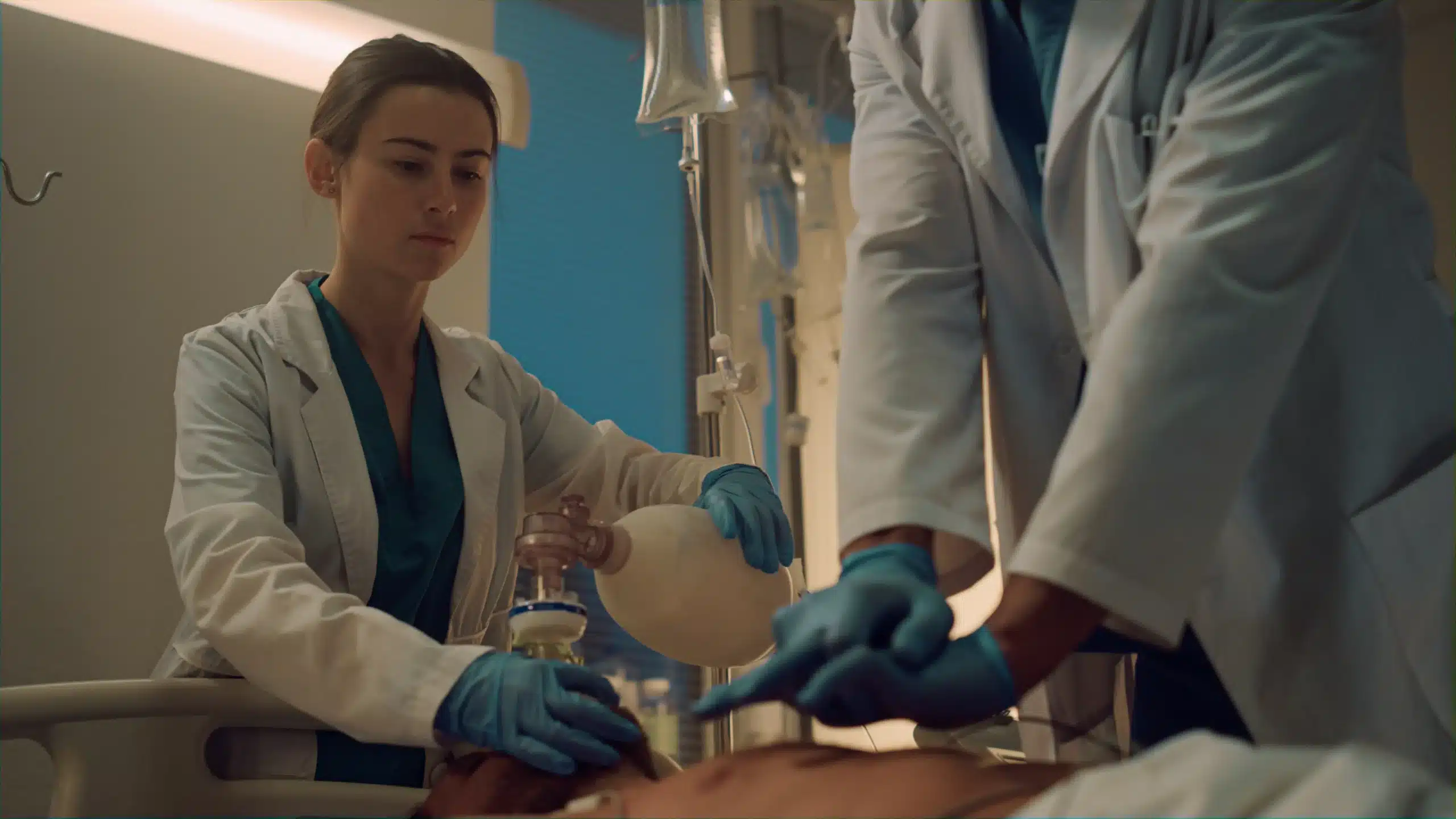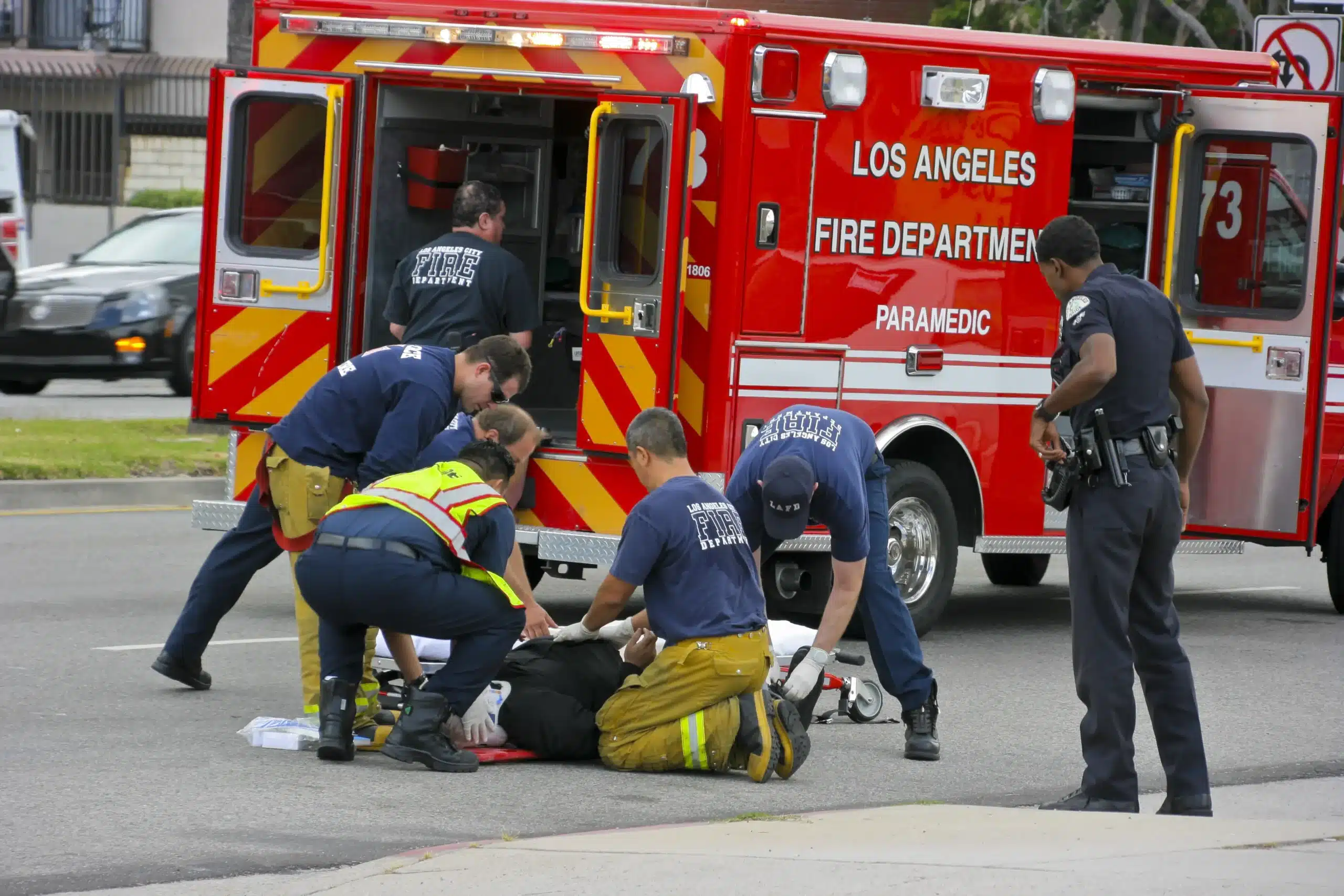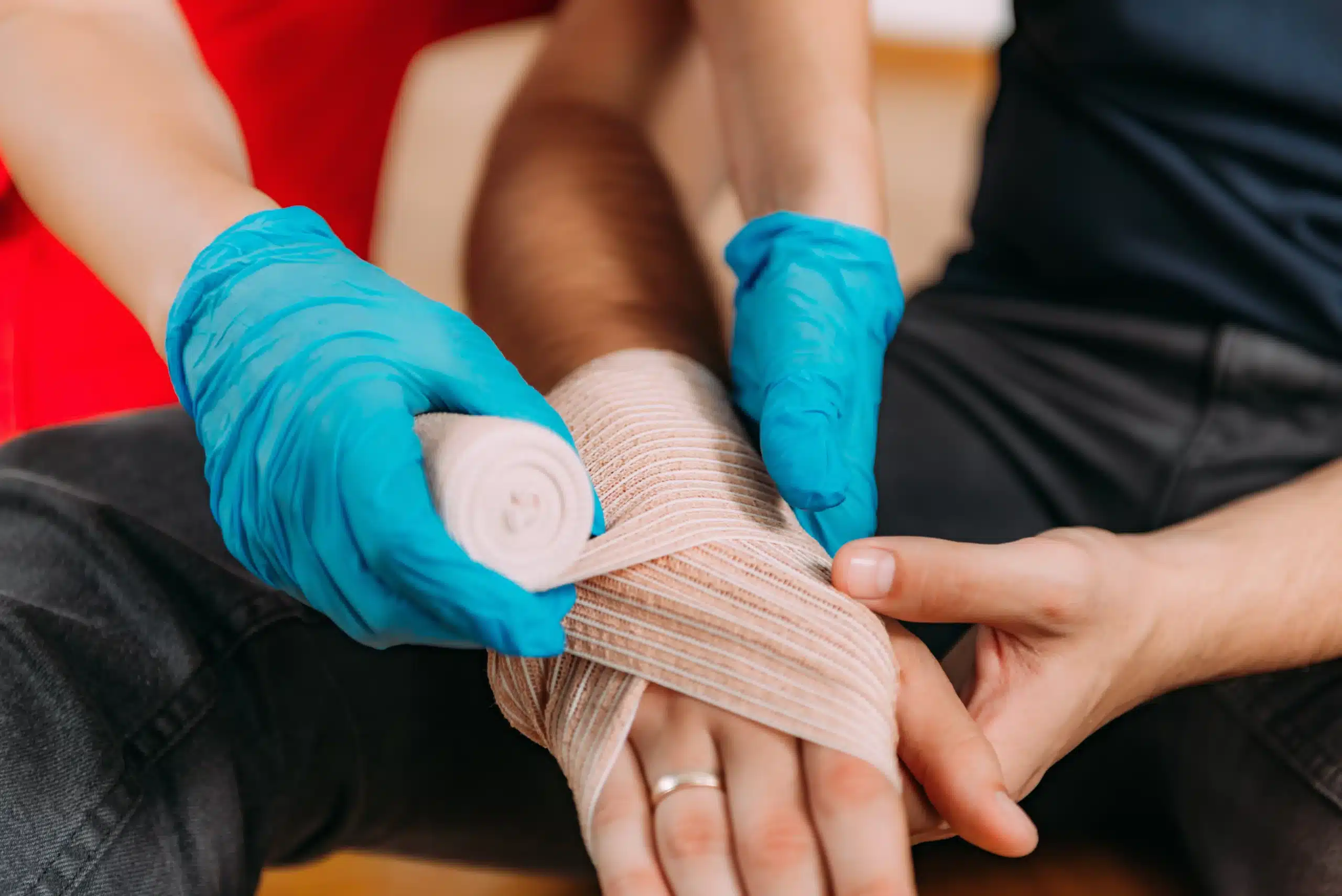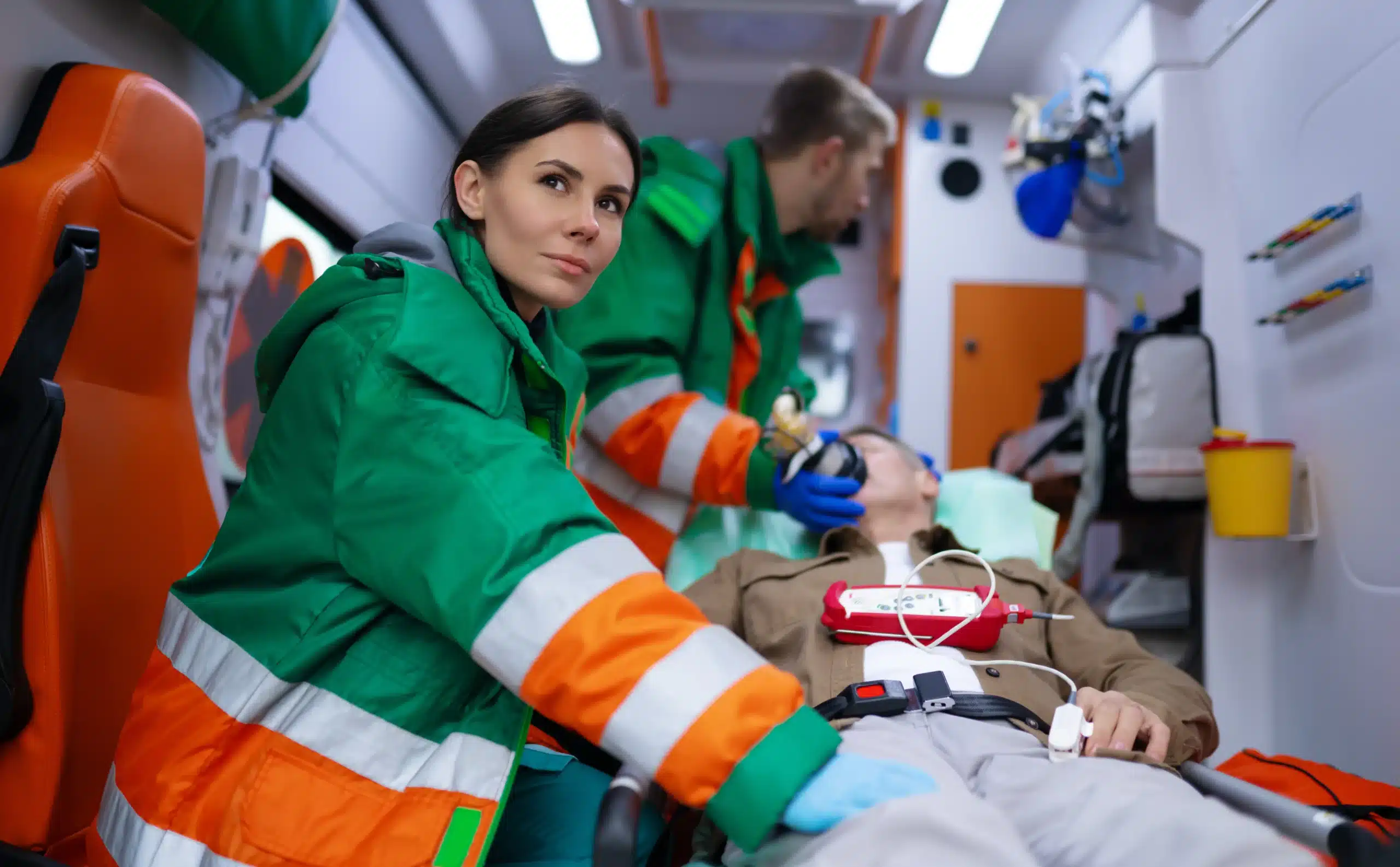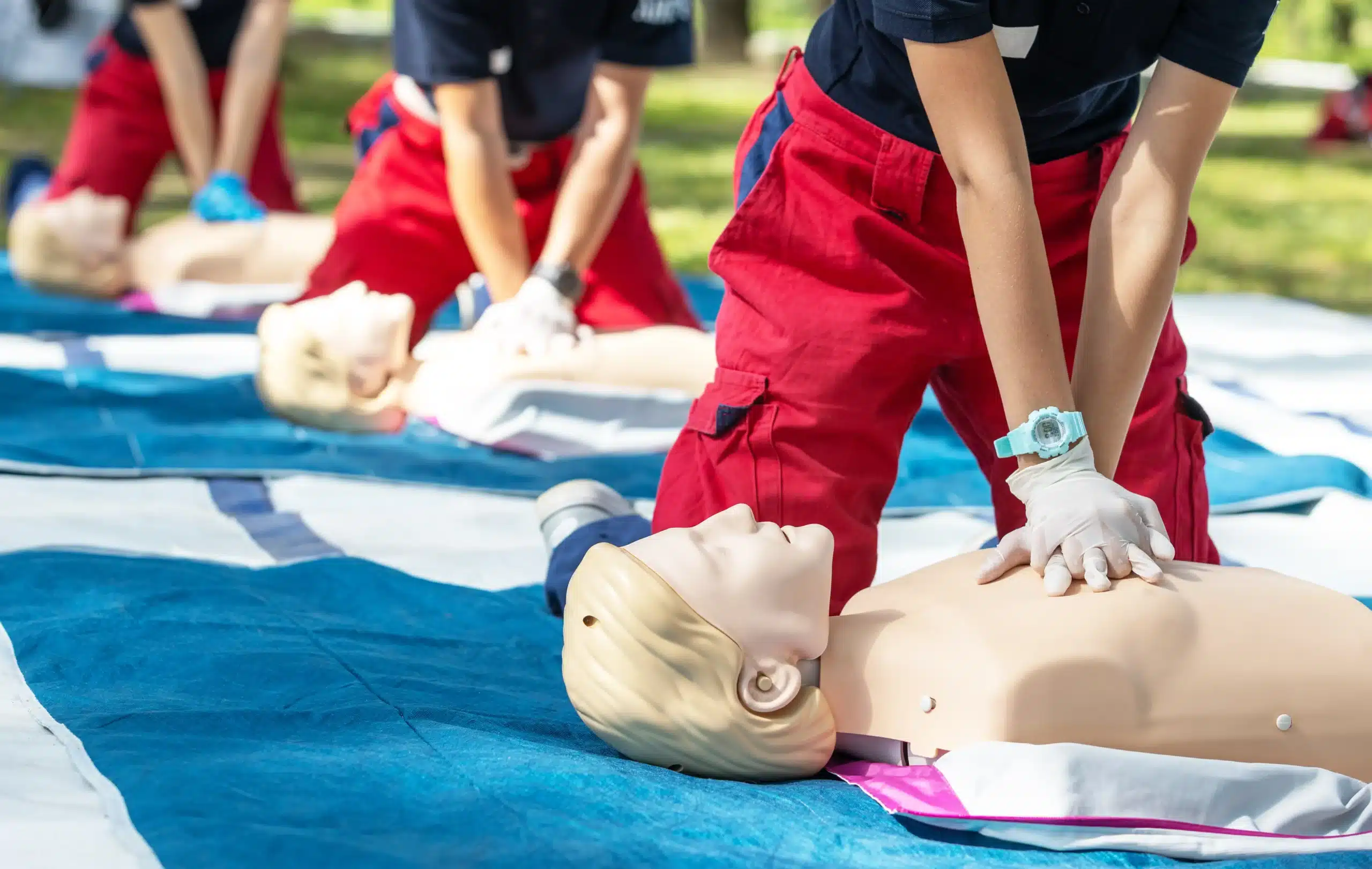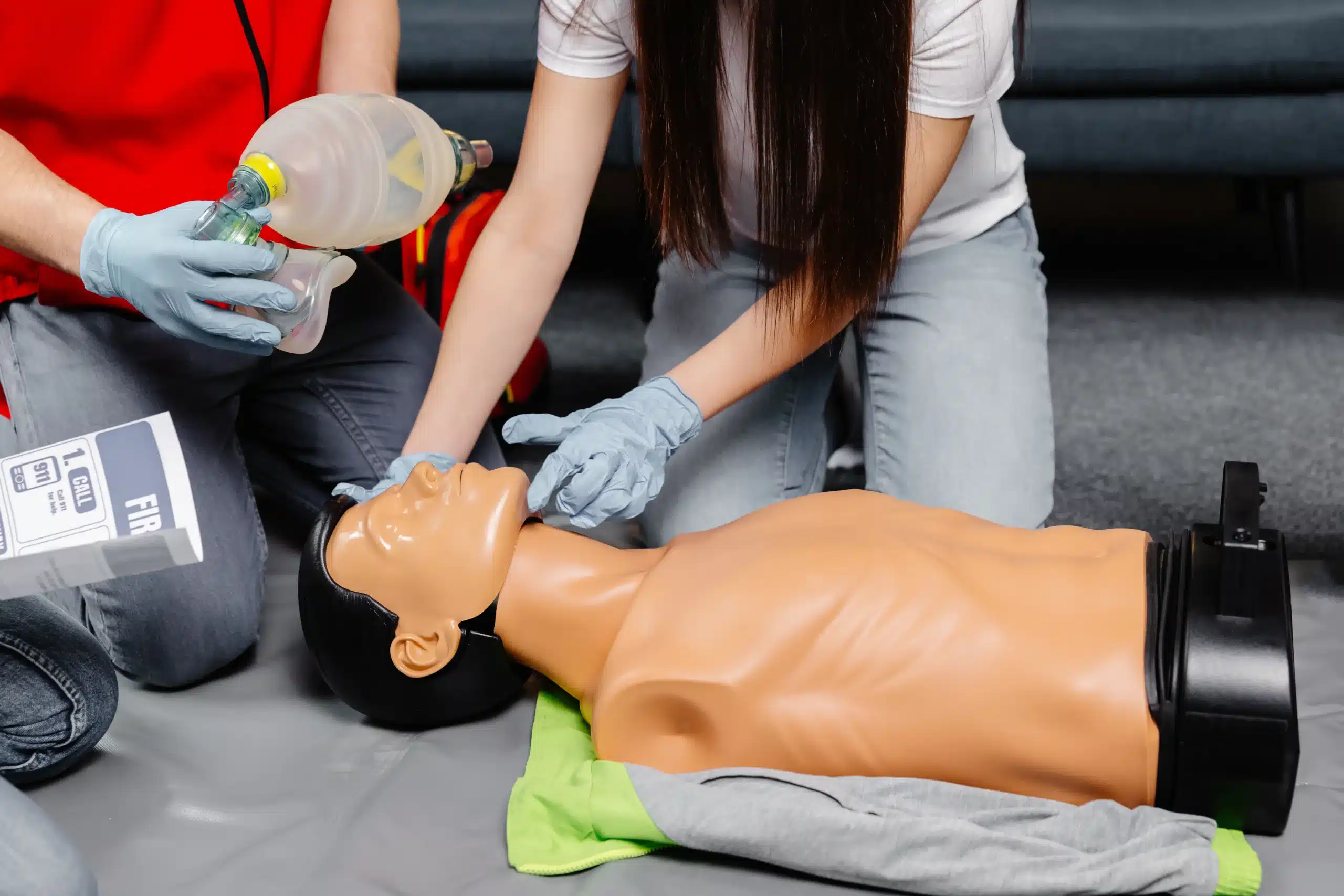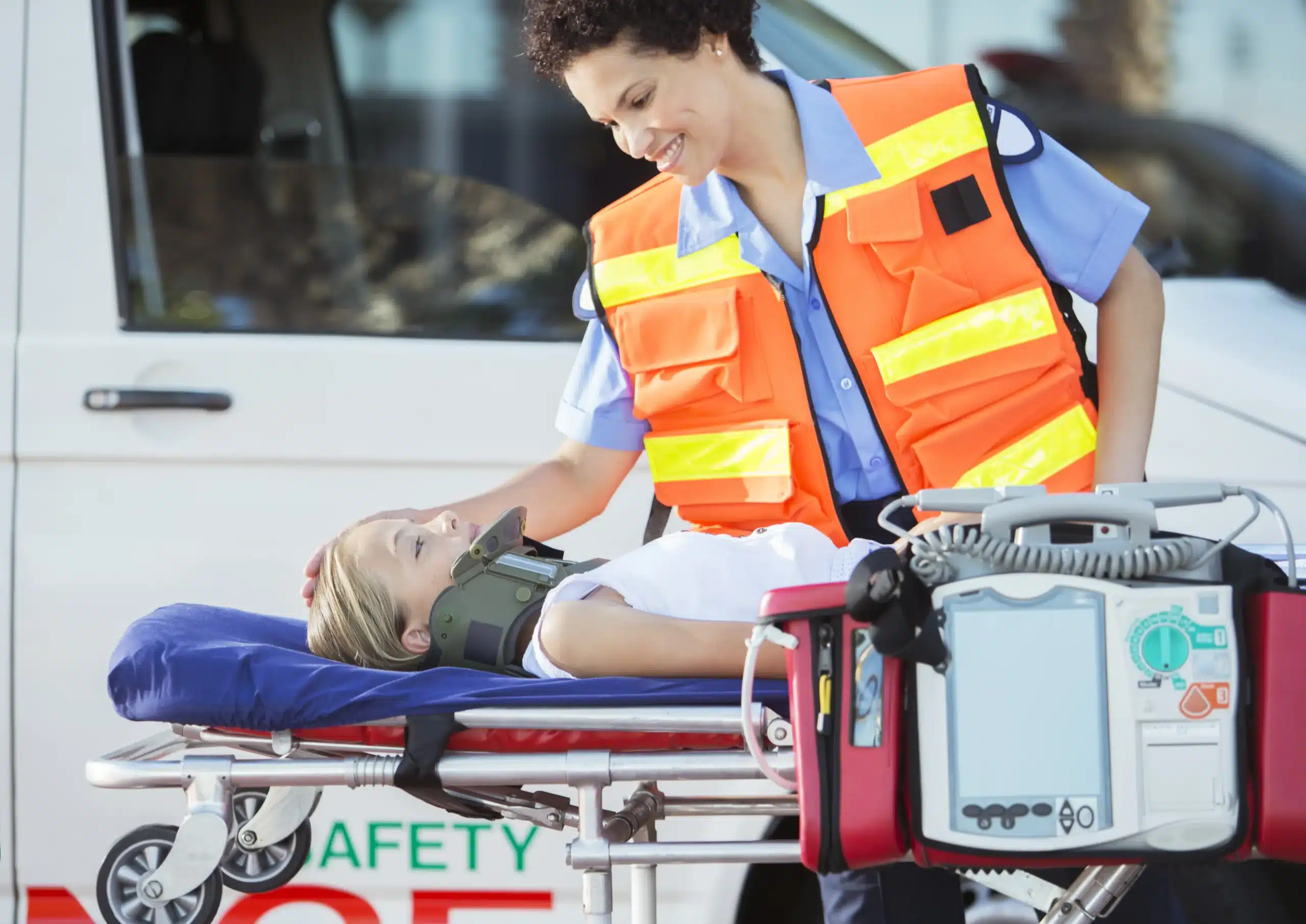In Fresno, having readily available CPR-trained individuals can make all the difference in a medical emergency. This comprehensive guide explores the importance of CPR and provides valuable resources for finding CPR courses in Fresno. Whether you’re a healthcare professional, a concerned parent, or simply someone who wants to be prepared, this guide will help you find the right training. We’ll cover various CPR certifications, course formats, costs, and top training providers in Fresno. We’ll also delve into what happens during a CPR class and how these skills enhance community safety.
Key Takeaways
- CPR skills empower you to make a difference: Learning CPR equips you to respond effectively during emergencies, potentially saving lives in Fresno. Explore the various CPR course options available to find the right fit for your needs.
- Fresno CPR Classes offers accessible and affordable training: Take advantage of their range of AHA-certified courses, convenient schedules, and group discounts to get certified without breaking the bank.
- Find the ideal CPR course format for your lifestyle: Whether you prefer hands-on, in-person training, the flexibility of online learning, or a blended approach, Fresno offers courses designed to accommodate various learning styles and schedules.
What is CPR and Why Does it Matter in Fresno?
Cardiopulmonary resuscitation (CPR) is a life-saving technique used when someone’s heartbeat or breathing has stopped. It combines chest compressions and rescue breaths to circulate oxygenated blood to the brain and other vital organs until professional medical help arrives. Learning CPR empowers you to make a real difference in a critical situation. But why is it particularly important in Fresno?
CPR training plays a vital role in Fresno’s community health. It creates a network of potential lifesavers throughout the city. When more people are equipped with these skills, the chances of someone receiving immediate help during a medical emergency significantly increase. This is especially crucial given that emergency response times can vary. By knowing CPR, you become an immediate responder, potentially bridging the gap between a life-threatening event and the arrival of paramedics. Contact us to learn more about how you can become a part of this network.
Fresno offers a wide range of CPR and First-aid classes to meet the needs of everyone from concerned parents to healthcare professionals. Fresno CPR Classes offers courses tailored to different experience levels, ensuring that our community members have access to the training they need. Whether you’re looking for basic life support skills or advanced certification, there’s a program designed for you. This accessibility to diverse training options strengthens Fresno’s emergency preparedness. Empowering individuals with these skills creates a safer environment for everyone.
CPR Courses in Fresno: What’s Available?
Finding the right CPR class can feel overwhelming, but it doesn’t have to be. Fresno offers a variety of courses designed to meet different needs, from basic life support to specialized certifications. Let’s break down the options:
Basic CPR/AED Training
This foundational course equips you with the essential skills to respond to cardiac arrest and other emergencies. You’ll learn how to perform CPR on adults, children, and infants, as well as how to use an automated external defibrillator (AED). Basic CPR/AED training is perfect for anyone who wants to learn life-saving skills, whether for personal preparedness or professional requirements. Check out Fresno CPR Classes for their Basic Life Support (BLS) certification.
CPR with First Aid
Combining CPR training with first aid knowledge gives you a well-rounded skill set to handle various medical situations. This comprehensive course covers everything from treating minor injuries like cuts and burns to responding to more serious emergencies like choking and allergic reactions. CPR and First Aid training is valuable for anyone, but especially beneficial for those working with children, in community settings, or simply wanting to be extra prepared.
Healthcare Provider BLS
Healthcare providers, such as doctors, nurses, and paramedics, require a more in-depth understanding of CPR. Healthcare Provider BLS courses delve deeper into the science behind CPR and cover advanced techniques specific to the medical field. These courses often include training on bag-mask ventilation and two-rescuer CPR. Consider Fresno’s CPR training programs to find the right fit for healthcare professionals.
Specialized Courses (ACLS, PALS)
Beyond basic and healthcare provider BLS, there are specialized CPR courses designed for specific situations. Advanced Cardiovascular Life Support (ACLS) focuses on managing adult cardiac arrests and other cardiovascular emergencies, while Pediatric Advanced Life Support (PALS) addresses the unique needs of infants and children. Fresno CPR Classes offers specialized certifications like ACLS and PALS, often required for certain healthcare roles.
CPR Course Costs in Fresno
Knowing the cost of CPR certification is a practical first step. This section breaks down typical price ranges and how to find the best value for your training.
Standard Pricing
CPR class prices in Fresno typically range from $40 to $100. Several factors influence the final cost, including the type of certification you need (like BLS, ACLS, PALS, etc.), the class format (in-person, blended, or online), and the training center. A basic CPR/AED course might be on the lower end of that range, while a more specialized course like ACLS for healthcare providers will likely be more expensive. Check directly with the training center for the most up-to-date pricing. Fresno CPR Classes lists current rates and course options.
Group Discounts and Package Deals
If you’re training with a group, you might be able to save. Many CPR training providers in Fresno, including Fresno CPR Classes, offer discounts for groups. This can be a great option for businesses training employees, community organizations, or even a group of friends. Some providers also offer package deals that combine certifications or include additional training materials at a reduced price. Ask about these options when you contact a training center.
CPR Course Formats and Duration
Finding the right CPR course often depends on your learning style and schedule. Luckily, there are several formats available, each with its own advantages. Let’s explore the most common options: in-person training, online learning, and blended learning.
In-Person Training
In-person CPR training offers a hands-on learning experience with direct interaction with a certified instructor. This format allows you to practice your skills in a controlled environment and receive immediate feedback. You’ll work with training manikins and other equipment, giving you a realistic feel for performing CPR in real-life situations. In-person classes offer a two-year certification meeting OSHA requirements, making them suitable for both personal interest and professional obligations. For example, the Red Cross offers in-person CPR classes. Because of the personalized instruction and opportunity for real-time clarification, many students find this format beneficial. Fresno CPR Classes also offers a variety of in-person courses to fit your needs.
Online Learning
Online CPR courses provide flexibility and convenience, allowing you to learn at your own pace and from anywhere with an internet connection. This format is ideal for those with busy schedules or limited access to in-person classes. Providers like NewLife CPR offer self-paced online certification courses. These courses often utilize a combination of videos, text, and whiteboard instruction to ensure comprehensive learning. It’s important to note that while convenient, online-only courses may not include the hands-on practice with manikins required for some certifications, like those from the American Heart Association or Red Cross. Be sure to check the specifics of any online course to ensure it meets your needs. If you prefer online learning, explore our RQI courses for a flexible learning experience.
Blended Learning
Blended learning combines online learning with in-person skills sessions. This format typically involves completing the theoretical portion of the course online, followed by a hands-on session with an instructor to practice and refine your skills. The Red Cross offers blended learning options for those seeking a combination of flexibility and hands-on training. This approach ensures you receive both the theoretical knowledge and the practical experience necessary for effective CPR. Contact us at Fresno CPR Classes to learn more about blended learning options that suit your schedule and preferences.
CPR Certification and Validity
Getting CPR certified is a rewarding experience, but it’s natural to have questions about the process. This section clarifies key aspects of CPR certification, including the importance of American Heart Association (AHA) certification, OSHA compliance, and staying current with your skills.
American Heart Association Certification
Fresno CPR Classes offers AHA-certified courses in CPR and First Aid. The AHA is a trusted leader in resuscitation science, and their certifications are widely recognized and respected. Choosing an AHA-certified course ensures you’re learning the most up-to-date techniques and receiving a credential that holds weight. Fresno CPR Classes provides same-day certification, getting you the credentials you need quickly.
OSHA Compliance
For many jobs, OSHA compliance is essential. In-person CPR training typically leads to a two-year certification that meets OSHA requirements. It’s important to be aware that online-only CPR classes do not meet these standards. If workplace compliance is a factor for you, choose an in-person class to be prepared for workplace emergencies and meet any regulatory requirements.
Renewing Your Certification
Your CPR certification is valid for two years. However, skills can fade over time. Even if your certification is still valid, refresh your knowledge and skills with a refresher course. Regular practice helps you stay sharp and confident in your ability to respond effectively during a real emergency. Fresno CPR Classes offers convenient refresher courses to help you maintain your proficiency.
Top CPR Training Providers in Fresno
Finding the right CPR training provider is an important step. Here’s a look at some popular options in Fresno:
Fresno CPR Classes
Fresno CPR Classes offers a range of American Heart Association certifications, including BLS, ACLS, and PALS. With daily classes in over 60 cities, they prioritize convenience and affordability. They also offer a low price guarantee and discounts for groups. If you’re looking for comprehensive training and flexible scheduling, Fresno CPR Classes is worth considering. They also offer more specialized training like the RQI program.
American Red Cross
The American Red Cross is a well-known provider of CPR/AED training. They offer various learning formats, including in-person, online, and blended learning (a combination of online and in-person instruction). Their in-person classes lead to a two-year certification that meets OSHA requirements. This makes them a solid choice for those seeking a recognized certification.
CPR Certification Fresno
CPR Certification Fresno provides American Heart Association (AHA) certified CPR and First Aid classes. They emphasize same-day certification and hands-on, instructor-led training. Their courses ensure your certification is valid for two years and aligns with industry standards.
NewLife CPR
NewLife CPR focuses on online CPR, First Aid, and AED certification. While not affiliated with the AHA or Red Cross, their certifications are generally accepted. Their online CPR certification offers flexibility for those who prefer to learn at their own speed, typically taking 1–3 hours to complete.
Action CPR Training
Action CPR Training is another option for CPR and first aid training in Fresno. With a high rating on review sites, they have a reputation for quality instruction. Customer reviews often highlight their instructors and effective teaching methods. If positive reviews are important to you, Action CPR Training might be a good fit.
What Happens in a CPR Course?
Want to know what to expect in a CPR class? CPR courses, like those offered by Fresno CPR Classes, blend theory and practical skills to prepare you for real-life emergencies. Here’s a glimpse into a typical class:
Hands-on Practice
CPR classes aren’t just lectures. They’re highly interactive, with a strong emphasis on hands-on learning. You’ll spend a significant portion of the class practicing chest compressions, rescue breaths, and using an AED on training manikins. This practical experience builds muscle memory and confidence, preparing you to act quickly and effectively in a crisis. Instructors provide personalized feedback, ensuring you master the correct techniques.
Written Assessments
Most CPR courses include a written exam to assess your understanding of key concepts. This typically covers topics like recognizing the signs of a heart attack, the steps of CPR, and how to use an AED. The test reinforces what you’ve learned, preparing you for the hands-on skills assessment performed with a certified instructor.
Correcting CPR Misconceptions
CPR instructors often dedicate time to debunking common CPR myths. For example, some people believe chest compressions alone are ineffective or that CPR is only for adults. Instructors clarify these misconceptions, emphasizing the importance of chest compressions and highlighting techniques for infants and children. They’ll also address concerns like the risk of broken ribs during CPR, explaining why effective compressions are still crucial. You can learn more about these and other common myths online.
How CPR Training Improves Community Safety
Knowing CPR can make a real difference in your community. It equips you with the skills to respond effectively during emergencies, potentially saving lives. Let’s explore why CPR training is so vital for Fresno.
Cardiac Arrest Statistics
Over 500,000 cardiac arrests occur each year in the US, according to the Red Cross. This stark reality underscores the importance of CPR training. In Fresno, like anywhere else, cardiac arrest can happen suddenly. Having trained individuals readily available can dramatically improve the odds of survival. When someone experiences cardiac arrest, their heart stops pumping blood effectively, depriving the brain and other vital organs of oxygen. Every second counts, and immediate CPR can help maintain blood flow until professional medical help arrives.
Bystander CPR: Making a Difference
CPR training empowers people to take action during medical emergencies. It provides the skills and confidence to step in when it matters most, creating a network of potential lifesavers. Fresno CPR Classes emphasizes how CPR training has a significant impact on individual lives and community safety. Bystanders trained in CPR can bridge the critical gap between the onset of an emergency and the arrival of paramedics. This immediate intervention can significantly improve outcomes, especially in cases of cardiac arrest where the first few minutes are crucial. Early CPR can truly be the difference between life and death.
Public Safety Through CPR Education
CPR and First Aid training are essential for building a safer community. These skills equip individuals to respond effectively to various medical emergencies, from choking incidents to sudden cardiac arrest. Bay Area CPR highlights how CPR and First Aid classes empower individuals to save lives. Widespread CPR education creates a more prepared and resilient community, where more people have the knowledge and skills to assist during emergencies. This increased preparedness can lead to better outcomes and a greater sense of security for everyone.
Choose the Right CPR Course
Deciding on the right CPR course can feel overwhelming, but it doesn’t have to be. Think about why you’re taking the course, and the best fit will likely become clear. Here’s a breakdown to help you:
Professional Requirements
Some professions require CPR certification. Healthcare providers, educators, lifeguards, and many other roles necessitate this training. If your job requires CPR certification, check with your employer about which certifications they accept. For many healthcare professionals in Fresno, American Heart Association BLS Certification is the standard. This course covers essential life support skills for healthcare settings.
Personal and Family Safety
Even if it’s not a job requirement, learning CPR is a valuable skill. Knowing how to respond to a medical emergency involving a loved one can bring peace of mind. Basic CPR and First Aid training empowers you to assist family members, friends, or even strangers in critical situations. Consider a combined CPR and First Aid course to be prepared for various emergencies.
Community Involvement
Learning CPR isn’t just about individual preparedness; it’s about contributing to a safer community. By becoming trained, you become a potential lifesaver in Fresno. CPR-trained individuals can make a significant difference before professional help arrives. This training creates a network of people ready to respond to emergencies, strengthening community safety. Check out Fresno CPR Classes for local options. They even offer a low price guarantee.
Comparing Courses
CPR courses vary in content, cost, and format. Basic Life Support (BLS) certification focuses on healthcare providers, while CPR/AED courses are geared toward the general public. Consider your needs and budget when choosing a course. Group discounts are often available, making training more affordable. Also, compare the length of the certification—some providers offer certifications valid for two years. Contact training providers directly to discuss your needs and find the perfect fit. You might also consider adding RQI training to your CPR certification.
Get Ready for Your CPR Course
So, you’ve decided to take a CPR course—fantastic! Knowing CPR can truly make a difference. To make the most of your upcoming training, here’s how to prepare:
What to Bring
Fresno CPR Classes makes training convenient and affordable. We provide everything you need during the course, so you don’t have to worry about bringing manuals or equipment. Comfortable clothing is recommended, as you’ll be actively participating in hands-on practice. You might also want to bring a notebook and pen to jot down any questions or key takeaways. For more on what we offer, see our Fresno CPR Classes guide.
Pre-Course Study Materials
While pre-course study isn’t required for most CPR classes, familiarizing yourself with the basics can be helpful. Our guide to CPR and first-aid training offers a great overview of life-saving techniques and can boost your confidence before training.
Refresher Resources
Already certified? Brushing up on your skills before a refresher course is always a good idea. Even if your certification is still valid, revisiting the material can reinforce your knowledge and improve your confidence. Local resources can help you find refresher courses and other helpful information.
Why Recertify?
CPR guidelines and best practices can change, so staying up-to-date is crucial. Plus, regular practice helps maintain muscle memory and keeps your skills sharp. Although your CPR certification is valid for two years, refreshing your knowledge sooner rather than later is always recommended.
Related Articles
- Why CPR is Important in Healthcare – Fresno CPR Classes
- CPR Classes in Fresno: Your Complete Guide – Fresno CPR Classes
- Why CPR Matters in Healthcare (And How to Get Certified)
- CPR & First-Aid Training in Fresno: A Complete Guide – Fresno CPR Classes
- Fresno CPR Classes: Your Complete Guide – Fresno CPR Classes
Frequently Asked Questions
What kind of CPR classes are available in Fresno? Fresno offers a variety of CPR classes, ranging from basic CPR/AED training for the general public to advanced certifications like ACLS and PALS for healthcare professionals. You can also find combined CPR and First Aid courses, which provide a broader skillset for handling various medical emergencies. The best choice depends on your specific needs and goals.
How much do CPR classes cost in Fresno? CPR class prices typically range from $40 to $100, depending on the type of certification, the course format (in-person, online, or blended), and the training center. Many providers offer group discounts, so if you’re training with a group, be sure to ask about potential savings. Fresno CPR Classes offers a low-price guarantee, so it’s worth checking their rates.
What is the difference between in-person and online CPR training? In-person CPR training provides hands-on practice with manikins and direct interaction with an instructor, allowing for immediate feedback and a more realistic learning experience. Online courses offer flexibility and convenience, allowing you to learn at your own pace from anywhere with internet access. However, online-only courses may not include the hands-on skills assessment required for some certifications or workplace requirements. Blended learning combines the convenience of online learning with the benefits of in-person skills sessions.
How long is CPR certification valid, and why is recertification important? CPR certification is typically valid for two years. Recertification is essential because CPR guidelines and best practices can change, and regular practice helps maintain your skills and confidence. Even if your certification is still valid, refreshing your knowledge and skills through a refresher course is always a good idea.
How can I find a reputable CPR training provider in Fresno? Several reputable CPR training providers serve the Fresno area, including Fresno CPR Classes, the American Red Cross, CPR Certification Fresno, NewLife CPR, and Action CPR Training. When choosing a provider, consider factors like the type of certification offered, the course format, cost, schedule, and instructor experience. Reading reviews and comparing options can help you find the best fit for your needs.
